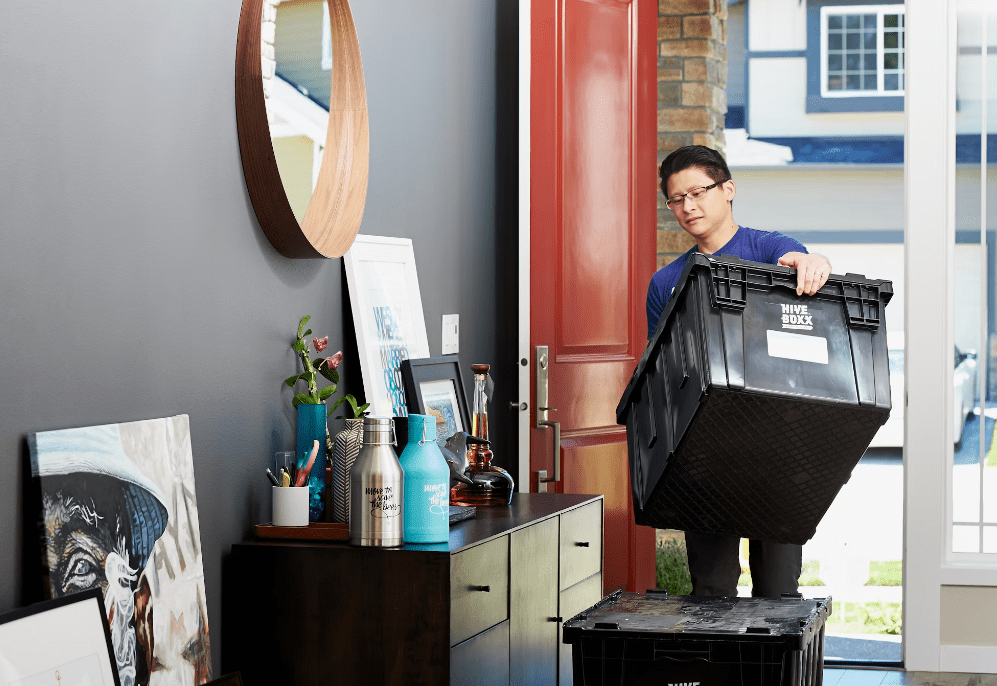Moving to a new home is a significant life event that stirs a whirlwind of emotions. It blends the thrill of new beginnings with the anxiety of uprooting your life. The process involves not just the physical act of sorting through your belongings and coordinating logistics. It also requires managing the emotional upheaval that comes with such a transition.

Enlisting an unpacking and organizing service can alleviate some of the logistical stress, but the psychological impact remains profound.
This mix of excitement and apprehension is natural. By understanding these emotional challenges and employing effective coping strategies, you can transform the experience into a positive and enriching journey.
Embracing the move as an opportunity for growth and new experiences can ultimately make the transition smoother and more rewarding.
The Emotional Rollercoaster of Moving
Moving is frequently listed among life’s most anxiety-inducing experiences, comparable to significant events such as changing jobs or coping with loss. On average, Americans relocate approximately 12 times throughout their lives, with millions making the move each year.
Forbes emphasizes that 51% of recent moves by Americans in the past two years were unexpected. This unforeseen aspect amplifies the strain associated with relocation.
This stress stems from various sources, including:
Disruption of Routine
The upheaval caused by moving can disturb your regular habits and schedules, contributing to sensations of instability and discomfort.
As per Verywell Mind, the lack of familiar structure and routine can heighten distress, magnifying focus on the challenges you encounter.
Fear of the Unknown
Not knowing what to expect in terms of neighborhood dynamics, social interactions, and daily schedules can leave individuals feeling vulnerable and on edge. This anxiety may stem from the fear of the unknown and the need for predictability and stability in one’s surroundings.
Sentimental Attachments
When relocating, sentimental attachments to belongings can significantly influence the process. Objects holding memories often serve as symbols of comfort, making parting with them challenging.
Health News notes that as individuals age, they may develop heightened sentimental feelings towards possessions, reinforcing attachment through nostalgic reminiscence. This self-perpetuating cycle can deepen emotional connections, impacting decisions regarding items within the home or the entire household.
Decision Overload
Making decisions, whether simple or complex, is an integral part of daily life. According to Harvard Business Review, the average adult reportedly makes around 35,000 choices each day. Factors such as lifestyle, age, and profession can influence the volume of decisions we face.
However, the decision-making process becomes particularly overwhelming during relocation. The multitude of choices, like selecting a moving company, deciding what to keep, and organizing logistics, can quickly lead to decision overload.
This flood of decisions can cause decision fatigue, diminishing the quality of choices as the brain becomes overwhelmed.
Understanding these emotional triggers is the first step in managing the stress associated with moving.
Coping Strategies for Moving Stress
Here are some practical tips to help you navigate the complexities of moving with greater ease and confidence.
Recognize Your Emotions
Experiencing a variety of feelings during a move is common. Permit yourself to feel these emotions without criticism, as acknowledging them can aid in their effective processing.
Stay Organized
Organization is crucial for minimizing moving stress. Create a moving checklist, set timelines, and prioritize tasks. Consider hiring a professional unpacking and organizing service.
Clutterless Home Solutions suggests choosing a company that offers an in-depth consultation to understand your needs and vision for your new space. Arrange a walk-through with a master organizer to ensure everything is set up according to your preferences, making the transition stress-free.
Prioritize Your Physical Well-being
Stress can have adverse effects on your physical health, underscoring the importance of adequate sleep, balanced nutrition, and hydration.
Engaging in regular exercise not only mitigates stress and uplifts your mood but also improves cognitive functions. According to Harvard Health, engaging in moderate-intensity exercise can improve thinking and memory within just six months.
Reach Out for Assistance
Do not hesitate to seek aid from your loved ones. Whether you need practical assistance with tasks like packing or emotional support during challenging times, a robust support network can make a significant difference.
Having friends and family by your side can provide tangible help and moral support, reducing stress and making difficult situations more manageable.
Maintain a Positive Perspective
Concentrate on the uplifting aspects of moving, such as the fresh opportunities and new experiences that await you. Picture the benefits of your new home and neighborhood, from meeting new people to exploring different surroundings.
This positive visualization can help you stay motivated and excited throughout the moving process, transforming any anxiety into eager anticipation for the adventures ahead.
FAQs
What are common stressors during a move?
Common stressors include packing and unpacking, coordinating logistics, saying goodbye to familiar places and people, adjusting to a new environment, and financial concerns.
What are the benefits of hiring an unpacking and organizing service?
Hiring a professional service can save you time and energy during the unpacking process while reducing stress and overwhelm. Additionally, it ensures efficient use of space and creates a functional and aesthetically pleasing home environment.
How much does an unpacking and organizing service cost?
The typical hourly rate for a professional organizer is approximately $55. However, this cost can vary, ranging from $30 to $130 per hour, depending on the project.
In conclusion, moving is a complex process that can stir up a range of emotions. By understanding the psychological aspects of moving and implementing strategies to cope with stress, you can navigate this transition more smoothly.
Embrace the change as an opportunity for growth and new experiences, and remember to seek support when needed.
Moving, whether near or far, can be a positive and enriching journey with the right mindset and preparation.



